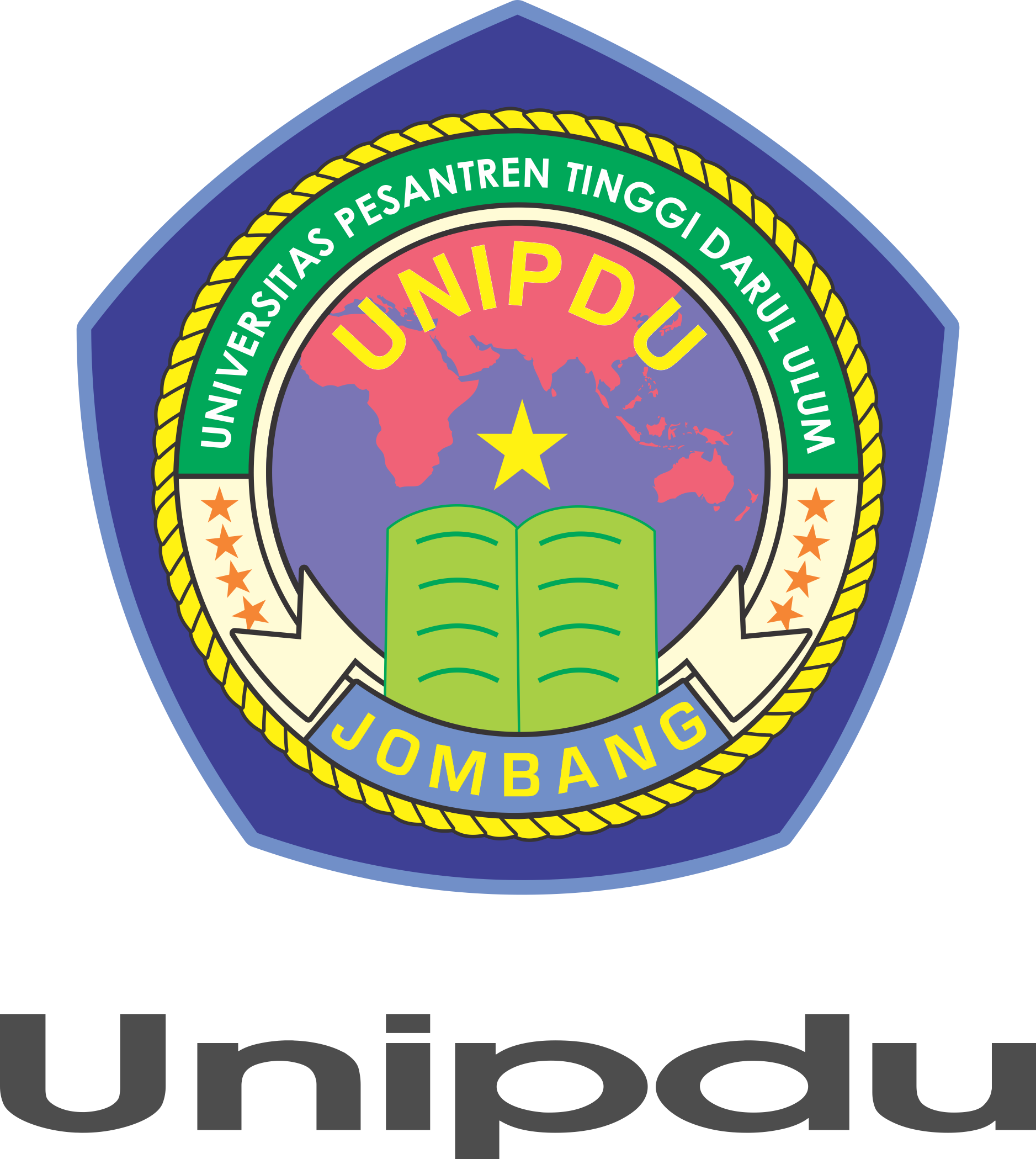PENGARUH KONSELING TERHADAP SELF STIGMA PASIEN HIV/AIDS DENGAN PENDEKATAN TEORI LAWRENCE GREEN
https://doi.org/10.26594/edunursing.v5i2.2740
Abstract
Abstract
The stigma that occurs in society against people with HIV and AIDS has an impact on sufferers to stigmatize themselves (Self Stigma). Negative self-acceptance which causes a decrease in self-esteem and self-efficacy so that it affects the individual's belief to be able to recover. The purpose of this study was to analyze the effect of counseling on self-stigma of patients with the Lawrence green theory approach. The research design was a pretest-posttest control group design with a sample size of 40 respondents selected by purposive sampling technique. The instrument used is a questionnaire. Counseling treatment of respondents using the module. The statistical tests used were paired t-test and independent t-test. The test results showed that the treatment group was 0.000 and the control group was 0.104. Correlation coefficient 0.600. The independent t test value of 0.001 means that there is a difference in the average number of self-stigma in the treatment group and the average in the control group after counseling. Counseling with Lawrence Green's theoretical approach can reduce self-stigma so that HIV/AIDS patients think positively about themselves, do not withdraw from the environment and are willing to behave in therapy for their own healing.
Keywords: self stigma, HIV/AIDS, counseling, lawrence green
References
DAFTAR PUSTAKA
Alam, N., Cortina-Borja, M., Goetghebuer, T., Marczynska, M., Vigano, A., & Thorne, C. (2012). Body fat abnormality in HIV-infected children and adolescents living in Europe: prevalence and risk factors. JAIDS Journal of Acquired Immune Deficiency Syndromes, 59(3), 314-324.
Busyairi, A., & Sinaga, P. (2015). Strategi pembelajaran creative problem solving (CPS) berbasis eksperimen untuk meningkatkan kemampuan kognitif dan keterampilan berpikir kreatif. Jurnal pengajaran MIPA, 20(2), 133-143.
Corrigan, P. (2019). 7. Beating Stigma Person To Person. In The Stigma Effect (pp. 155-187). Columbia University Press.
Djufri, S. (2017). Pengaruh Penyuluhan Hiv/Aids Terhadap Stigma Hiv/Aids Pada Siswa Kelas Xi Di Madrasah Aliyah Negeri 3 Bantul.
Earnshaw, V. A., Smith, L. R., Chaudoir, S. R., Amico, K. R., & Copenhaver, M. M. (2013). HIV stigma mechanisms and well-being among PLWH: a test of the HIV stigma framework. AIDS and Behavior, 17(5), 1785-1795.
Green, L. W. (2014). Closing the chasm between research and practice: evidence of and for change. Health Promotion Journal of Australia, 25(1), 25-29.
Hajar, S. (2020). Hubungan Pengetahuan Ibu Hamil Tentang Hiv/Aids Terhadap Perilaku Pemeriksaan Provider Initiated Testing And Counseling (Pitc) C Di Puskesmas Teunom Kabupaten Aceh Jaya. Jurnal Geulima, 10(2), 41-49.
Hayat, S., Yanmaz, E., & Muzaffar, R. (2016). Survey on unmanned aerial vehicle networks for civil applications: A communications viewpoint. IEEE Communications Surveys & Tutorials, 18(4), 2624-2661.
Herek, G. M., Saha, S., & Burack, J. (2013). Stigma and psychological distress in people with HIV/AIDS. Basic and Applied Social Psychology, 35(1), 41-54.
Lysaker, P. H., & Klion, R. E. (2017). Recovery, meaning-making, and severe mental illness: A comprehensive guide to metacognitive reflection and insight therapy. Routledge.
Mak, W. W., Mo, P. K., Ma, G. Y., & Lam, M. Y. (2017). Meta-analysis and systematic review of studies on the effectiveness of HIV stigma reduction programs. Social science & medicine, 188, 30-40.
Manan, N. S., Aldous, L., Alias, Y., Murray, P., Yellowlees, L. J., Lagunas, M. C., & Hardacre, C. (2011). Electrochemistry of sulfur and polysulfides in ionic liquids. The Journal of Physical Chemistry B, 115(47), 13873-13879.
Najmah, N., Etrawati, F., Yeni, Y., & Utama, F. (2016). Intervensi Terpadu Pengurangan Dampak Buruk Asap Rokok pada Ruangan Berpengatur Udara di Lingkungan Universitas Sriwijaya. Buletin Penelitian Kesehatan, 44(4), 219-226.
Nanda, G. V., & Rahmawati, A. (2018). Pengaruh Pendidikan Kesehatan Tentang Penularan Hiv/Aids terhadap Stigma Masyarakat pada ODHA Di Dusun Sawahan Nogotirto Gamping Sleman Yogyakarta.
Nisa, N. K. (2018). Pengaruh Psikoedukasi Dan Interactive Nursing Reminder Berbasis Short Message Service Dengan Pendekatan Teori Lawrence Green Terhadap Peningkatan Kualitas Hidup Klien Tuberkulosis [Universitas Airlangga]. http://repository.unair.ac.id/id/eprint/77184
Nursalam, A., & Supriyani, T. (2017). Gambaran Sikap Dan Kemudahan Ibu Balita Ke Posyandu Di Desa Singasari Kecamatan Singaparna Kabupaten Tasikmalaya Tahun 2015. Jurnal Kesehatan Bidkesmas Respati, 1(08), 35-41.
Nursalam (2012) Metodologi Penelitian Kesehatan, Yogjakarta: Rineka Cipta
Notoatmojo (2012) Metodologi Penelitian, Yogjakarta: Rineka Cipta
Putri, D. K., Malini, H., & Basmanelly, B. (2019). Living with HIV/AIDS: Stigma and Social Discrimination. Jurnal The Messenger, 11(1), 10-17.
Rahmat, M., & Hubert, P. (2011). Carbon nanotube–polymer interactions in nanocomposites: a review. Composites Science and Technology, 72(1), 72-84.
Retnowati, M. (2017). Hubungan Pendidikan Dan Kepercayaan Dengan Stigma Tokoh Agama Terhadap Orang Dengan Hiv/Aids (Odha) Di Kabupaten Banyumas. Bidan Prada: Jurnal Publikasi Kebidanan Akbid YLPP Purwokerto.
Rompas, S., & Katuuk, M. E. (2017). Pengaruh Penyuluhan Kesehatan Tentang Hiv-Aids Terhadap Stigma Masyarakat Di Desa Watumea Kecamatan Eris Kabupaten Minahasa. Jurnal Keperawatan, 5(2).
Setiadi, (2013), Konsep dan Praktik Penulisan Riset Keperawatan. Yogjakarta: Graha Ilmu.
Sugiyono (2017) Penelitian Kualitatif dan Kuantitatif. Yogjakarta: Alfabeta
Vidayati, L. A. (2019). Tingkat Kecemasan Wanita Yang Menderita Penyakit Hiv/Aids Di Yayasan Genta Surabaya. Jurnal Ilmiah Obsgin: Jurnal Ilmiah Ilmu Kebidanan & Kandungan P-ISSN: 1979-3340 e-ISSN: 2685-7987, 11(1).
Williams, I., Churchill, D., Anderson, J., Boffito, M., Bower, M., Cairns, G., & Youle, M. (2012). British HIV Association guidelines for the treatment of HIV-1-positive adults with antiretroviral therapy 2012. HIV medicine, 13(S2), 1-6.
Zain, Z. F. S., & Firdaus, A. (2020). Diskursus Agama Terhadap Aids Di Indonesia. Jurnal Ilmu Agama: Mengkaji Doktrin, Pemikiran, dan Fenomena Agama, 21(1), 78-99.
Zelaya, C. E., Sivaram, S., Johnson, S. C., Srikrishnan, A. K., Suniti, S., & Celentano, D. D. (2012). Measurement of self, experienced, and perceived HIV/AIDS stigma using parallel scales in Chennai, India. AIDS care, 24(7), 846-855.
Downloads
Published
How to Cite
Issue
Section
License









